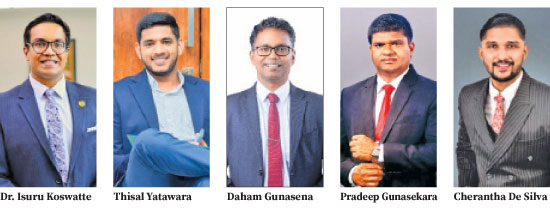In an increasingly volatile global business environment, the chapter emphasizes that both entrepreneurs and leaders must cultivate resilience to survive and thrive.
The COVID-19 pandemic acted as a critical juncture, revealing the limitations of traditional leadership models and highlighting the need for adaptive, inclusive, and forward-thinking leadership.
This study aims to contribute to the growing body of literature on entrepreneurial leadership, especially from the perspective of the Global South, using evidence from three diverse Sri Lankan industries: electric vehicles, textiles, and food manufacturing.
Theoretical Frameworks
Two key conceptual models underpin the analysis:
1. Three-Principle Model (Greenberg et al., 2013):
= Cognitive Ambidexterity – Balancing data-driven decision-making with action-oriented problem-solving in uncertainty.
 = Social-Economic Value Creation – Creating shared value beyond profits.
= Social-Economic Value Creation – Creating shared value beyond profits.
= Self-Awareness – Developing internal clarity to sustain long-term motivation.
2. TRY Leadership Model
(Audretsch and Tamvada, 2023):
= Emphasizes Trust, Respect, and You as central to responsible leadership practices.
Key Themes Identified
1. Resilience Mindset
All three organizations showcased a proactive and growth-oriented mindset during the pandemic. Rather than retreating, they embraced innovation and reimagined operations.
Leaders at Kapla Motors, Maliban Textiles, and Ceylon Biscuits Ltd emphasized feedback loops, inclusive communication, and psychological safety—critical factors in building both individual and organizational resilience.
2. Upskilling and Reskilling through Transformational Leadership
The chapter underscores the role of transformational leadership in workforce development. Leaders invested in internal learning platforms, mentoring, and digital skill-building.
Kapla Motors rotated fresh graduates through departments for holistic learning; Maliban established a learning academy; and CBL implemented technology-oriented training to support digital transformation.
3. Entrepreneurial Spirit
An entrepreneurial culture was fostered by empowering employees to take ownership, innovate, and grow into leaders themselves. Leaders at CBL and Kapla Motors nurtured autonomy and creativity, which led to tangible improvements in performance and morale.
The emphasis on agility, calculated risk-taking, and continuous learning reinforced an entrepreneurial mindset across the organizations.
Case Study Highlights
= Kapla Motors: Demonstrated innovation in the electric vehicle sector and emphasized cross-functional team learning. The director’s participatory and feedback-driven approach exemplified entrepreneurial leadership.
= Maliban Textiles: Used the pandemic as an opportunity to invest in infrastructure and human capital. Their HR leadership promoted strategic thinking, adaptability, and learning through formal training structures.
= Ceylon Biscuits Ltd (CBL): Displayed a stakeholder-centric leadership model, maintaining engagement with employees, suppliers, customers, and partners. Their leadership nurtured both emotional resilience and strategic adaptability.
Implications and Contributions
The chapter provides strong empirical evidence that entrepreneurial leadership is a dynamic capability, not restricted to startups or founders.
Leadership, when rooted in resilience and a growth mindset, can trigger entrepreneurial behaviour even within established organizations.
The integration of the Three-Principle and TRY models offers a structured framework to understand this convergence.
Moreover, the chapter challenges the conventional view that entrepreneurship has a narrower application compared to leadership.
It proposes that leadership qualities—such as vision, empathy, and adaptability—can lay the groundwork for employees to evolve into entrepreneurial thinkers.
This insight is especially valuable in emerging economies like Sri Lanka, where systemic uncertainty demands flexible and empowered workforces.
Conclusion
Ultimately, the study illustrates that resilience is not just about bouncing back but also about bouncing forward.
It is a process that combines individual mindset shifts, inclusive leadership, and ongoing capability development.
In the Sri Lankan cases presented, transformational leaders successfully navigated crisis by investing in people, promoting entrepreneurial values, and adapting to systemic change.
The chapter concludes by suggesting the need for more research on culturally grounded leadership models within South Asia and the broader Global South.
Understanding how entrepreneurial leadership manifests in different socio-economic and cultural contexts could lead to more nuanced frameworks that are globally applicable yet locally relevant.
You can read the full book chapter from the link below
https://www.taylorfrancis.com/chapters/edit/10.4324/9781032624976-7/entrepreneurial-resilience-leadership-transformation-isuru-koswatte-shehani-joseph-thisal-yatawara-kailasapathy-iyampillai-aushadharie-kaushalya
Dr. Isuru Koswatte
Assistant Professor Business and Management
University of the West of Scotland
Adjunct Senior Research Fellow, NSBM Green University
Thisal Yatawara
NSBM Green University
Daham Gunasena
Chief Operating Officer
Ceylon Biscuits Limited
Pradeep Gunasekara
Group Head of Human Resources and Compliance
EAM Maliban Textiles ( Pvt) Limited – Tops Cluster/ Martex M F G ( Pvt) Limited
Cherantha De Silva Executive Director
Kapla Motor Industries









